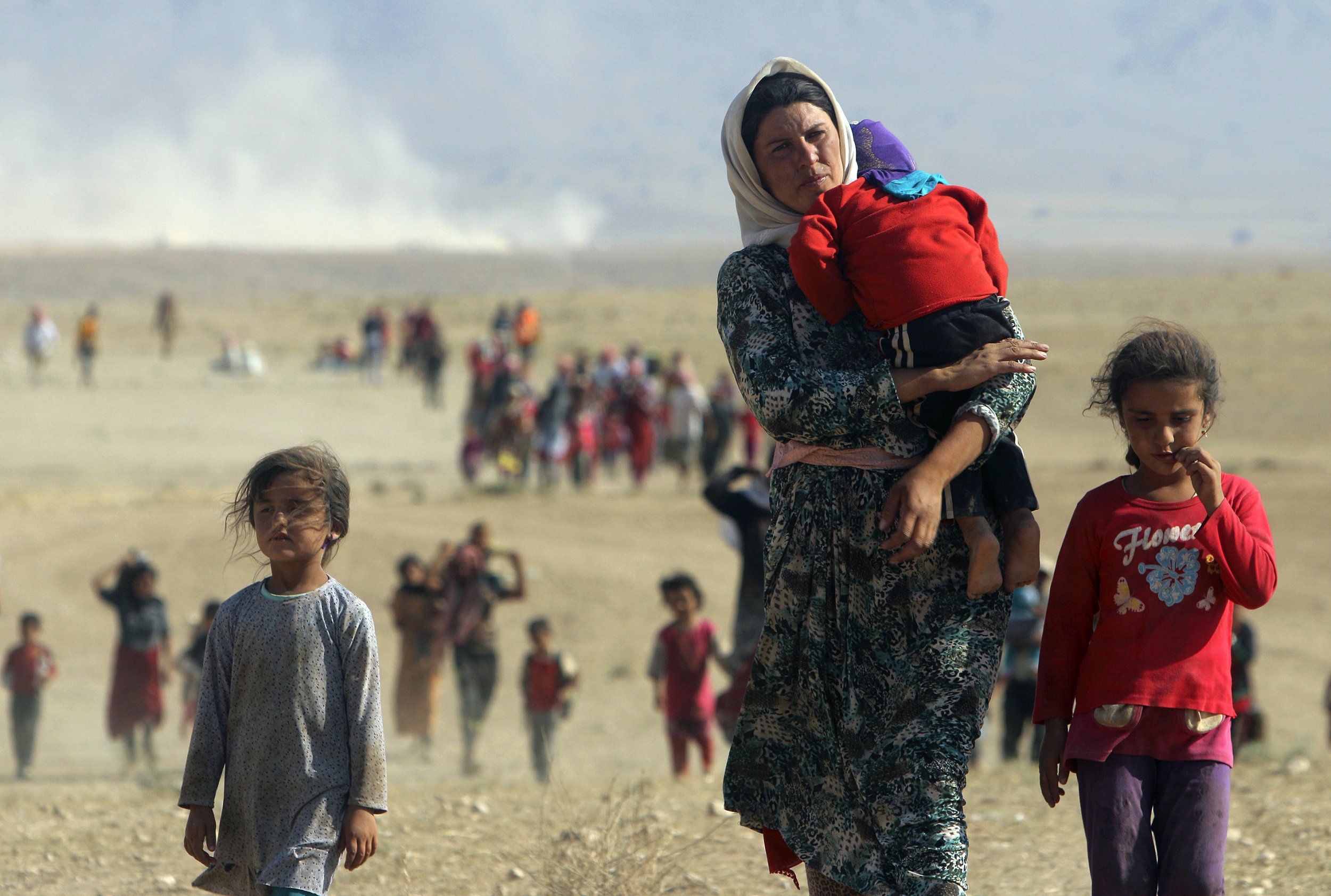
Even as the battle to destroy the Islamic State militant group (ISIS) draws to a close, Iraq enters a new chapter of vicious turmoil. While the coalition's military operations were meticulously planned, a long-term approach for the refugee fallout never materialized, and the international community lacks a political strategy for the day after ISIS.
We Kurds host a massive proportion of refugees and internally displaced people from the sustained conflict—which now reaches a breaking point. Without immediate intervention, this crisis will become drastically worse, not only for us but also for Europe and the world.
It is time for a coordinated shift away from the reactive policies for coping with the refugee problem. We propose a safer and more cost-effective solution to this metastasizing humanitarian catastrophe: directing aid to refugees and IDPs within the Kurdish region of Iraq. The cost of sustaining them in our region is a fraction of what Europe spends.
The current costs to EU members are vast. Germany alone has budgeted nearly €100 billion to support refugees over the next three years. These figures don't include the immense burdens on domestic security and intelligence. A number of European countries resist any participation in refugee resettlement, and face steep penalties instead.
In stark contrast, we've managed to host 1.8 million refugees and IDPs on less than $2 billion per year. Compare this with the UK's staggering £2 billion budget for absorbing just 20,000 Syrian refugees. But while a quarter of these costs are covered by the international community, we are left to bear the remaining 75 percent.
Without aid from our partners, the Kurdistan region will see a breakdown in its ability to absorb refugees and IDPs, thereby increasing pressure on an already-strained European Union. This is not a calculated political rhetoric; it is basic math.
The arrival of nearly two million refugees and migrants to the EU in recent years already has far-reaching impacts. Border controls are tightening in Schengen countries. Budgets and patience are stretched thin. Member-states have lost confidence in the EU's ability to control the crises, and recent elections reflect frustration among citizens who question their governments' ability to affect change and listen to their concerns.
Few countries have opened their doors to as many refugees and IDPs as the Kurdish region of Iraq. Our once-humble population of just over 5 million ballooned as these visitors now comprise a third of our residents.
To say we Kurds have done our part is an understatement.
Yet, since 2014, we have not received our share of the budget from the Iraqi government, and our petroleum-reliant economy suffered as crude prices plummeted. For all its rhetoric, Baghdad has never shown willingness to aid victims of terror, nor to stem sectarian violence. As the West focused on defeating ISIS, it enabled the rise of other deadly groups—such as the terror-designated Iraqi Hezbollah and the Popular Mobilization Units, who fight alongside the Iraqi Army.
Following our recent independence referendum, these Iran-backed forces launched a surprise offensive to seize our borders and further strangle our economy.
In this short time, they've brutally murdered our Peshmerga and journalists alike, and looted and demolished scores of civilian homes. Their brief reign of terror and ethnic cleansing has already displaced more than 181,000 civilians, according to the U.N. Such extreme trends drive our social welfare infrastructure well beyond capacity.
Back in Europe, some nations appallingly operate "rehabilitation programs" for returning ISIS jihadists. The politicians behind this should come here to meet the Yazidi women and children who these "former" terrorists preyed on—and who may never receive help for the mental, physical, and sexual trauma from the most grotesque of crimes against humanity.
We need to see the development of rational solutions and innovative policy recommendations to confront the humanitarian disaster. Vice President Mike Pence's recent statement that America will provide direct support to persecuted minorities through USAID is an encouraging shift in the right direction. America realized that faith-based organizations on the ground, whether Christian, Yazidi or Muslim, tend to have a deeper understanding and reach within the communities they serve.
It is up to our longtime friends in Europe, the United States and Canada to pressure Baghdad to enter serious and constructive dialogue and to release our constitutionally-bound 17.5 percent share of the Iraqi budget. This is the first step in helping us obtain the humanitarian and security resources required to defeat terror, relieve the victims, and spare Europe from further unnecessary division and danger.
If Europe and the rest of the international community fail to further and more wisely invest in confronting the crisis here, closer to its epicenter, the crisis will inevitably arrive straight to your shores and your overflowing absorption centers. After all, if Iraq's economic blockade and military threats against Kurdistan are allowed to continue, not only will the displaced among us flee to Europe, but many of us - their host community - will, too.
A strong, stable Kurdistan, on the other hand, means strength and safety for Europe, and we need an immediate boost of support to achieve this mutual goal.
Falah Mustafa is the Head of the Foreign Relations Department of the Kurdistan Regional Government of Iraq.
Uncommon Knowledge
Newsweek is committed to challenging conventional wisdom and finding connections in the search for common ground.
Newsweek is committed to challenging conventional wisdom and finding connections in the search for common ground.
About the writer
To read how Newsweek uses AI as a newsroom tool, Click here.








